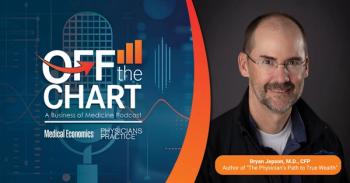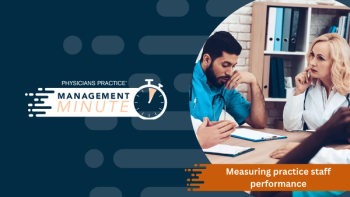
Busy Physicians Must Find Time to Sleep
For physicians, getting adequate sleep is vital to having sufficient energy to successfully navigate a busy day full of patient visits.
In his now out-of-print, classic book, "The Organic Clock," author Kenneth Rose explained that each function and part of your body maintains its own timing. A heartbeat, speaking, breathing, and even hiccupping each have their own rhythm. You disrupt your internal cycles - evolved over millions of years - when you sleep too little or too much.
Automatic reset
Rose observed that each one of your bodily functions "resets" on roughly a 24-hour cycle which, not coincidentally, matches up with the cycle of natural daylight. Thus every shred of your being adheres to a circadian rhythm - in living organisms, the daily cycle of activity. When you alter that rhythm, especially for an extended period of time, you interfere with the smooth functioning of your physiology.
Sleep researcher, Martin Moore-Ede notes that certain times throughout a 24-hour day are vital to sleep through, especially 2:00 a.m. to 5:00 a.m., when your physiology is apt to be at its lowest level of alertness. High alertness, in contrast, is from 9:00 a.m. to noon and from 4:00 p.m. to 8:00 p.m.
Especially as we approach the holidays, if you are short on sleep, stretching and/or taking a brief walk can help. Light physical activity can perk you up for an hour or so. If you have the chance to take a nap, that will help as well.
Nap time
A nap can increase your alertness for the balance of that day. Some individuals nap easily; other people cannot seem to nap easily, if at all. In which camp do you fall?
The best time to nap is between 2 p.m. and 3 p.m. Any later and your nap could prove to interfere with your sleep that night. While naps can help you to maintain regular sleep patterns, they are not good as substitutes when you shortchange your regular sleep. So, it is wise not to take naps to catch up on sleep, if you've been short-changing yourself each night.
If you take naps in a bed or cot - as opposed to a chair - the quality of your sleep will be higher. Also the immediate benefits tend to be more apparent. While everyone is subject to feeling a bit groggy for a minute or two following a nap, this subsides soon enough.
Surprisingly, shorter naps are more effective than longer naps. A short nap can leave you feeling refreshed, whereas a long nap could interfere with your sleep for that evening. Strive for naps that are 20 minutes or shorter to avoid REM sleep, a stage in which you are likely to awake feeling groggy and could stay that way for a while.
To attain the most from your nap, safeguard your nap area before you nod off. Ensure that phones or other gadgets won't disturb you. Create a "Do Not Disturb" sign if that helps in your situation.
Adjust and sleep well
Depending on what's been occurring in your life lately, you might want to readjust your sleep habits or your pre-bedtime ritual. In any case, getting adequate sleep is vital to having sufficient energy to successfully navigate through your day.
Newsletter
Optimize your practice with the Physicians Practice newsletter, offering management pearls, leadership tips, and business strategies tailored for practice administrators and physicians of any specialty.






